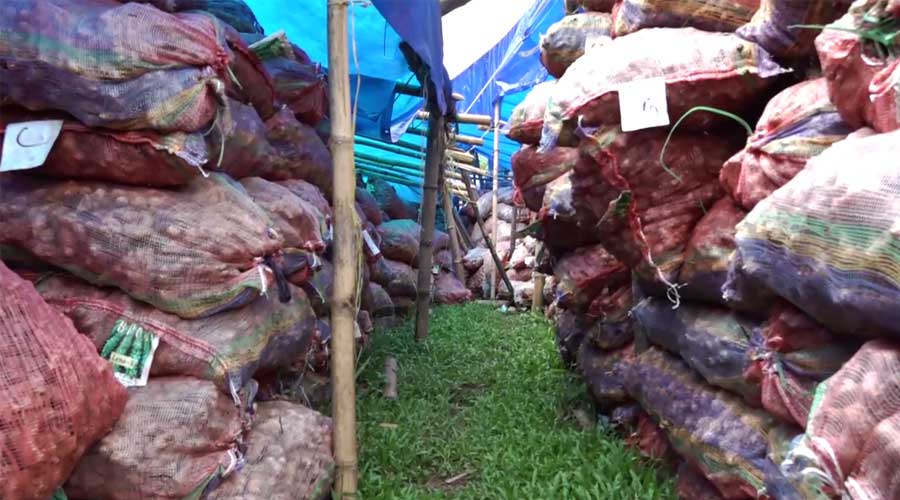
The government’s buy-back scheme is helping the farmers. However, the cost is escalating and if the management does not improve, the scheme will not see another day. A temporary FCBL depot in Pantang in Zhemgang is turning into a dump yard for ginger. The depot has more than twenty truckloads of ginger bought from the farmers about three months ago, and it is now going to waste.
The FCBL’s temporary depot in Pantang of Phangkhar Gewog is filled with ginger today. The government has bought the ginger from the farmers of the four gewogs of Bjoka, Goshing, Ngangla and Phangkhar. While the farmers have completed their business by selling off the ginger, they are still concerned with the poor management at the depot.
According to them, the rotting ginger at the depot will not only incur a loss to the government but will also affect their business later on.
“They have bought the ginger and stored it here for too long. With the humid weather and the ginger covered in plastics, it becomes more susceptible to rot. I think it would be a huge loss to the government,” said Changa Dawa, from Pantang.
“This is so disheartening to see. I don’t know why the ginger is not taken from here. It has started rotting lying here for more than three months,” added Dongchan, also from Pantang.
Farmers are also worried that this setback will hamper their business since this year’s harvest season is just around the corner.
“With just a month or two left for the ginger harvest season, we are worried about how this will affect us. We are also concerned about the loss the government will incur from this. We visit the depot often and see the gingers rotting,” said Drakpa.
However, officials from the Regional Food Corporation of Bhutan in Gelephu said about a hundred tons of ginger were transported to Gelephu from the depot in Pantang. They said they will soon take the remaining 200 tons once the auction yard in Gelephu is cleared.
While the sustainability of the buy-back scheme is questioned whenever such problems arise, it is, for now, coming as a respite to the farmers. The scheme has solved the market issue for the farmers, especially those living in far-flung villages.
Pema Samdrup, Zhemgang
Edited by Sonam








